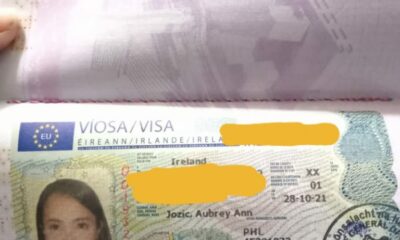Oppotunities
Skilled workers wanted: Ireland grants work permits to Nigerians, others

The Irish government has devised a strategy to attract foreign workers, including Nigerians, with specialized skills through the ‘Critical Skills Employment Permit’ program. This initiative targets individuals outside the European Economic Area and aims to address skill shortages in various sectors like production management, ICT, health, engineering, and more.
To be eligible, interested individuals must secure a job for two years or more with a registered Irish company, offering an annual salary meeting specific criteria. The scheme covers roles in health, teaching, business, design, sports, and marketing.
The Critical Skills Employment Permit is designed for qualified individuals with expertise in disciplines facing a shortage of qualifications and experience crucial for the Irish economy. Eligibility criteria include direct employment by a registered employer in Ireland and an annual salary that aligns with the Critical Skills Occupation List.
Applicants must obtain permits before entering Ireland, with registration and an Irish Residence Permit required upon arrival. The scheme emphasizes that labour market needs tests are not mandatory, simplifying the application process.
The application can be submitted by the employer, employee, a connected person, contractor, or an authorized agent. The cost of applications is €1,000, with a 90% refund for refusals or withdrawals. Rejected applications can be appealed within 28 days.
Successful applicants living outside Ireland must apply for a visa, and registration with the local office is essential. Family members can join the skilled worker, requiring separate visas or proof of relationship for entry.
After the initial two-year period, skilled workers can apply for Stamp 4 permission, allowing them to reside and work in Ireland without an employment permit. Citizenship by naturalization becomes an option after five years of legal residence.
This program presents an opportunity for skilled workers to contribute to the Irish workforce while providing avenues for family reunification and potential long-term residency.

















